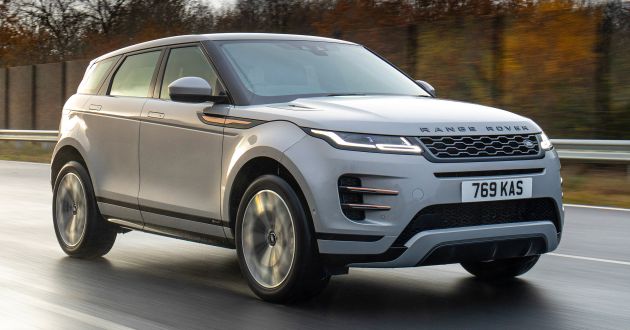Jaguar Land Rover posts RM2.28 bil in losses in 2019
Jaguar Land Rover (JLR) has posted a record £422 million (RM2.28 billion) in losses for its financial year ending March 31, citing the coronavirus pandemic as a key factor in affecting sales in the final quarter.
Its Q4 sales were 109,869 units, down 30.9% year-on-year, while full year sales totalled 508,659 vehicles, down 12.1% year-on-year. The automaker made a pre-tax loss of £501 million (RM2.7 billion) in Q4, while full year losses is £422 million (pre-tax). Revenues are £5.4 billion (RM29.1 billion) and £23 billion (RM124.1 billion) respectively.
Despite that, JLR said its Project Charge transformation programme helped the company claw back to profitability, with improved operating cash flow in Q2 and Q3 2019. It was also recording double-digit sales growth in China and expected the encouraging trend to continue into Q4, but then came Covid-19.
JLR said it responded swiftly to the health crisis by shutting down all plants, while at the same time implementing aggressive cost and investment controls to conserve cash. As the situation improves, JLR plans to gradually resume production at the Solihull, Halewood and engine plants in the UK, as well as its Slovakia plant and the contract assembly line in Austria.
In April, the pick-up rate for new JLR cars in China improved (it sold 6,828 cars, just 3.1% down year-on-year) after the government relaxed lockdown measures. In May, sales went up by 4.2% year-on-year to 8,068 units as demand for the more luxurious Range Rover and Range Rover Sport picked up.
As for global figures, JLR collectively sold 14,709 cars in April (down 62.5% year-on-year) and 24,024 cars in May (down 43.3%), but this is again due to lockdowns. Sales are expected to recover as retailers reopen – about 89% of JLR’s global retail network are fully or partially open.
Product-wise, the company said there is strong demand for the second-generation Range Rover Evoque, which saw sales rise by 24.7% year-on-year. Sales for the pure electric Jaguar I-Pace also shot up by 40%, and the company expects sales of its new Discovery Sport to pick up in China as well.


JLR will also launch new products to support the recovery, which includes ramping up production of the new Land Rover Defender. There are also plans to launch PHEV versions of the Evoque and Discovery Sport, both of which will get the new 1.5 litre three-cylinder Ingenium petrol engine. The 2020 Jaguar F-Type will also play a role in the recovery plan.
As for the immediate future, JLR said it will continue to manage costs during this uncertain period to protect liquidity. Cost and cash improvements under Project Charge increased by £600 million (RM3.24 billion) in Q4 to bring cumulative savings to £3.5 billion (RM18.9) by March 31, 2020.
One of the cost-cutting measures also includes the decision to reduce the number of contract-agency employees in its manufacturing plants over the coming months. It’s understood that around 1,100 of these employees will be let go.
The post Jaguar Land Rover posts RM2.28 bil in losses in 2019 appeared first on Paul Tan's Automotive News.
from Paul Tan's Automotive News
Read The Rest:paultan...




Post a Comment